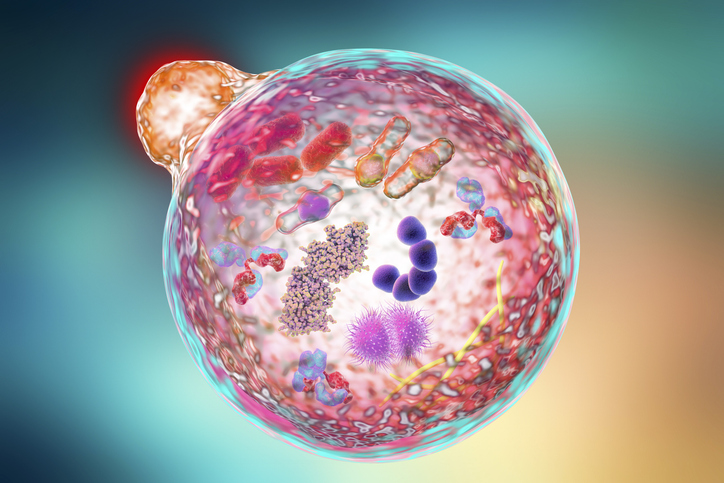In a twist that blurs the lines between two devastating diseases, scientists have spotted dementia-like behavior in the pancreas. In mice, pancreatic cells teetering on the brink of cancer began to clump up “problem proteins” during autophagy.
Pancreatic cancer remains one of the deadliest cancers, with low survival rates and limited treatment options, in part because it is often diagnosed too late. Around 67,500 people in the United States are estimated to be diagnosed with pancreatic cancer in 2025, as well as 10,500 who are diagnosed with the disease in the U.K. each year, according to Cancer Research UK.
Now, Cancer Research UK-funded scientists have uncovered dementia-like behavior in pancreas cells at risk of turning into cancer. The findings from a paper titled, “ER-phagy and proteostasis defects prime pancreatic epithelial state changes in KRAS-mediated oncogenesis,” published in Developmental Cell, could help researchers better understand the earliest steps of pancreatic cancer development—and potentially how to prevent it.
The team from the Cancer Research UK Scotland Centre followed murine pancreas cells over time, looking for what triggers healthy cells to tip toward malignancy. They found that precancer cells developed faults in their autophagy machinery, which led to the buildup of misfolded “problem proteins” that formed clumps. Similar protein aggregates were also found in human pancreatic tissue, hinting at a shared process across species.
“Our research shows the potential role autophagy disruption plays in the beginnings of pancreatic cancer,” said Simon Wilkinson, PhD, Cancer Research UK senior fellow at the University of Edinburgh’s Institute of Genetics and Cancer. “While early stage, we can potentially learn from research into other diseases where we see protein clumping, such as dementia, to better understand this aggressive type of cancer and how to prevent it.”
While mutations in the KRAS gene are well known to drive pancreatic cancer, among other cancers, they may not act alone. Autophagy is especially critical in the pancreas, which produces a constant supply of digestive enzymes and hormones to help with food breakdown. The researchers wrote, “Oncogenic Kras itself is sufficient to inhibit ER-phagy function, particularly in acinar cells proximal to ADM.”
As noted in a recent Cancer Letters review from Pimentel et al., “deregulation of autophagy can cause genomic instability, low protein quality, and DNA damage, all of which can contribute to cancer.” The review also highlights that “targeting the autophagy pathway is promising for the development of cancer drugs and cancer treatment,” though its role can be paradoxical: in some contexts, autophagy fuels tumor growth; in others, its breakdown sparks cancer initiation.
This new study suggests that the combination of faulty KRAS and disrupted autophagy could be a potent trigger for malignant transformation. “…direct generation of aggregates through ectopic expression of insoluble REG3B shows that these are sufficient to drive the injury-like acinar cell state and ADM [acinar-to-ductal metaplasia],” the researchers noted. ADM is a key early step toward pancreatic cancer.
“While further work is needed, these findings could provide vital clues into how we can better understand how pancreatic cancer develops,” said Iain Foulkes, PhD, executive director of research and innovation at Cancer Research UK. The researchers plan to investigate whether these changes could be predicted—or even reversed—early on, and whether age, sex, or diet might influence their onset.
The authors concluded that “cancer joins the group of serious diseases promoted by longitudinal dysproteostasis and protein aggregation,” placing it alongside neurodegenerative disorders in which abnormal protein clumps drive disease progression. By linking a neurodegeneration-like process to one of oncology’s most intractable cancers, the findings hint at a surprising cross-disease connection—one that may one day open doors to prevention strategies before cancer gains a foothold.
